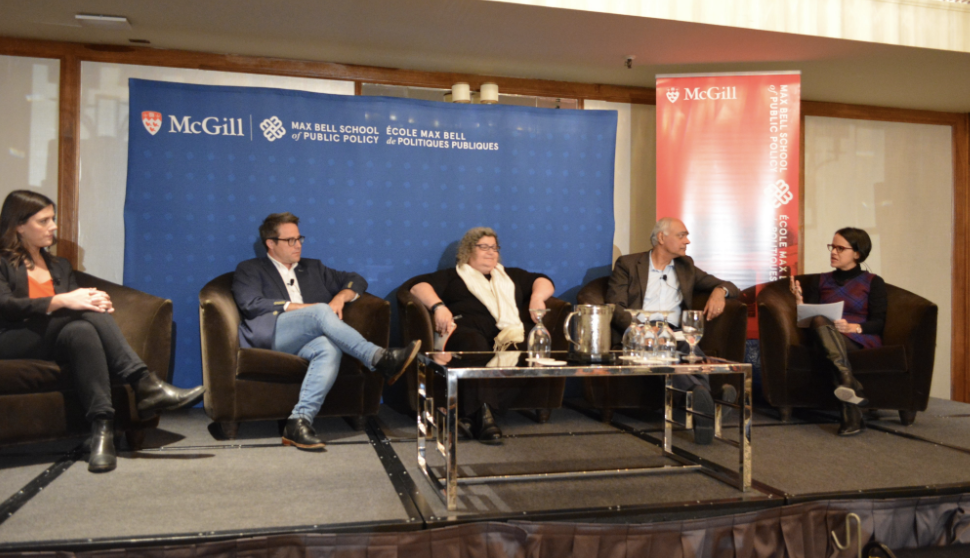The McGill Max Bell School of Public Policy partnered with the Canadian International Council to host a talk titled “Foreign Policy and Foreign Interference: The 2019 Canadian Elections” on Oct. 17. Jennifer Welsh, Canada 150 Research Chair in Global Governance and Security at McGill, moderated a panel of Canadian policy experts to discuss foreign policy issues and the country’s ability to address them.
Panelists discussed how foreign interference in the Canadian election may not have been as bad as it was in the 2016 United States’ election. Despite the decreased severity, Taylor Owen, Beaverbrook Chair in Media, Ethics and Communications Studies at Max Bell, described how digital infrastructure has shaped the nature of this election’s discourse.
“I think this might be the first real social media election that [we have seen],” Owen said. “[With] the parties, the media, [and] the public all participating on this plane of relatively superficial interaction. The election was small because our debate was small.”
Rohinton Medhora, President of the Centre for International Governance Innovation, also commented on the spread of misinformation and uninformed voters.
“If we had a thin, shallow debate on foreign issues is at least as important a fact as if the bad guys are interfering,” Medhora said. “We are woefully uninformed, from a Canadian perspective, on how the rest of the world is doing.”
Additionally, the panelists discussed the election’s failure to address major foreign policy issues that the next government will have to manage. Medhora acknowledged that there has been plenty of discussion on major policy issues, such as Canada’s relationship with the United States and the incarceration of Canadians in China, but Canada’s foreign policy had so far failed to address allies who do not hold the same liberal values as Canada.
“We haven’t really had a deep discussion on how Canada deals with countries like China [….] who do not share our heritage values,” Medhora said.
When it comes to the trend of nations slipping towards non-democratic regimes, Marie-Joëlle Zahar Political Science Professor and Director of the Research Network on Peace Operations at the Université de Montréal, argued that Canada needs to reevaluate some of its alliances.
“We assume that we are operating in a liberal world and that therefore liberal countries are going to stand together on issues and that is not the case,” Zahar said. “It becomes more difficult to have a conversation with other countries with which we [believe] share [our] values, when in fact [we] are drifting apart.”
In response to a question about Canada’s role in protecting democracy, the panel highlighted the importance of matching Canada’s digital infrastructure to the realities of foreign policy.
“There have always been foreign powers in campaigns and in elections,” Owen said. “We need to focus on the [digital] infrastructure itself and how we make it as democratic and transparent as possible. If we do that, [then] we will reveal the actors that are attempting to manipulate us.”
The panelists also admitted that it is unclear why Canada has not seen the same democratic backsliding as is prominent in other Western countries.
“We have a firm sense of ourselves as internationalists,” Zahar said. “We are not a country that goes it alone. Not committing to unilateralism […] is a good check against authoritarianism.”
Regardless, Medhora emphasized the importance of Canada’s foreign policy despite its size on the world stage.
“Canada, even if it might be a small player, should not shy away from doing something,” Medhora said. “We were two per cent of the war effort in World War II, that didn’t stop us from joining the war. [….] Small countries [like Canada] can contribute [to global discourse], and they should.”









